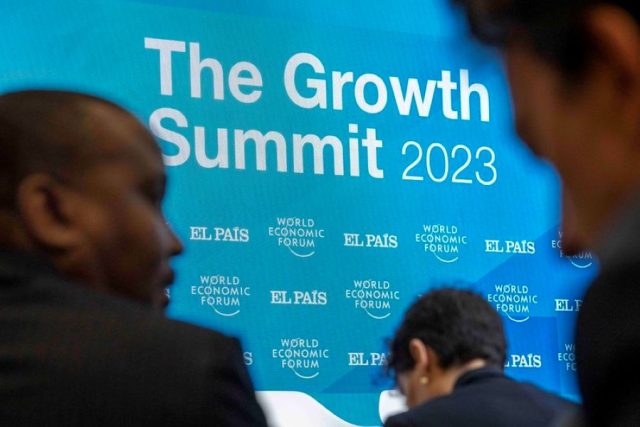…Growth outlook has strengthened in all regions but chief economists divided on likelihood of a global recession in 2023
…Experts do not see recent bank failures as signs of systemic vulnerability, although further turbulence may be ahead
…Experts concerned about trade-off between managing inflation and maintaining financial stability, with 76% anticipating central banks to struggle to bring down inflation
TUES, MAY. 02 2023-theGBJournal|The continuing uncertainty of the global economic outlook is reflected in the striking spread of responses to the latest Chief Economists Outlook, released today. In a survey featured in the report, experts are evenly divided on the prospects for the global economy, with equal shares of 45% saying that a global recession this year is likely or unlikely.
Chief economists expect both growth and inflation dynamics to vary widely across regions, while on the economic policy front, 72% predict proactive industrial policy to become an increasingly widespread phenomenon over the next three years. Although a majority do not see recent financial-sector disruption as a sign of systemic vulnerability, further bank failures and turbulence are considered likely this year.
Divergent regional dynamics
There has been a notable strengthening in growth expectations since the Chief Economists Outlook: January 2023, but the outlook differs sharply across regions. The most buoyant activity is expected in Asia, with China’s reopening expected to drive a significant rebound for the country and to bolster activity across the continent. More than 90% of the chief economists expect at least moderate growth in both East Asia and Pacific and South Asia.
At the other end of the spectrum, three-quarters of the chief economists still expect weak or very weak growth in Europe. In the United States, respondents were more optimistic in March-April than in January but are still divided on the outlook, with US growth prospects clouded by heightened uncertainty on financial stability and the likely pace and extent of monetary tightening.
On inflation, there was a marked uptick in all regions in the proportion of respondents expecting high inflation in 2023, and 76% of chief economists said they expect the cost of living to remain acute in many countries. Headline rates have begun to ease, but core inflation has been stickier than many expected. The dynamics are particularly stark in Europe and the US, where large majorities of the chief economists (90% and 68% respectively) expect high or very high inflation this year. China remains an outlier on inflation, with only 14% expecting high inflation this year.
Financial sector tremors
In the wake of recent bank collapses and financial market turbulence, chief economists expressed confidence in the systemic integrity of global markets. However, two-thirds highlighted the likelihood of further bank failures and disruption, while more than 80% said they expect businesses to find bank loans more difficult to secure as a result of tightening lending criteria. They also pointed to the knock-on effects of high interest rates, notably in the property sector, where two-thirds expect high rates to cause significant disruption in 2023-2024.
Changing face of globalization
The chief economists were unanimous in anticipating further changes in the structure of global supply chains. When asked which business strategies they expect to contribute to this reconfiguration, they highlighted adaption to geopolitical fault lines (94%), the prioritization of resilience over efficiency (91%), diversification of suppliers (84%) and an increased focus on environmental sustainability (77%).
They also pointed to the increasing significance of proactive industrial policy, with almost three-quarters expecting it to become a widespread approach to economic policy around the world. Respondents were divided on whether industrial policy will act as an engine of innovation, but they highlighted several potential concerns, including a deepening of geo-economic tensions (91%), the stifling of competition (70%) and a problematic increase in sovereign debt levels (68%).
“The latest edition of the Outlook highlights the uncertainty of current economic developments,” said Saadia Zahidi, Managing Director, World Economic Forum. “Labour markets are proving resilient for now, but growth remains sluggish, global tensions are deepening, and the cost of living remains acute in many countries. These results confirm the urgent need for both short-term global policy coordination as well as longer-term cooperation around a new framework for growth that will hardwire inclusion, sustainability and resilience into economic policy.”
The World Economic Forum’s Growth Summit, taking place in Geneva 2-3 May, will address the global growth outlook, hotspots in the global economy, and questions of competition and cooperation, as well as employment, skills and equity.
The Chief Economists Outlook Report aims to summarize the emerging contours of the current economic environment and identify priorities for further action by policy-makers and business leaders in response to the compounding shocks to the global economy. The survey featured in this briefing was conducted in March-April 2023.
Twitter-@theGBJournal|Facebook-the Government and Business Journal|email:gbj@govbusinessjournal.ng| govandbusinessj@gmail.com










